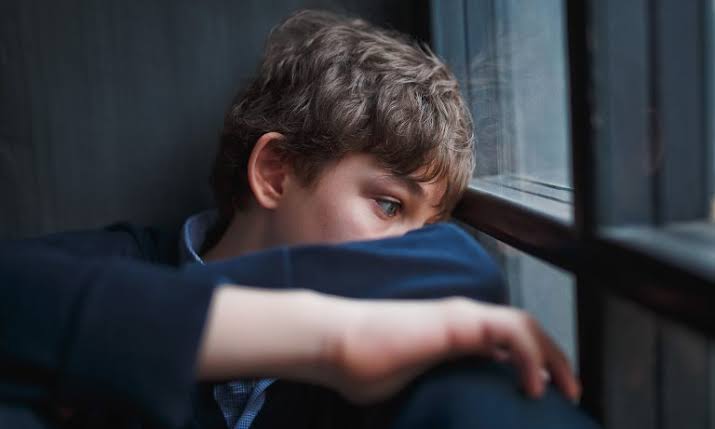What is depression?
Recognize signs of low mood and depression in children and learn ways to help them feel better.
All children feel low or down at times, it’s a natural part of growing up. But these emotions can be worrisome when felt intensely over long periods of time, particularly if they affect your child’s social, family and school life.
Although it's hard for anyone to feel optimistic when they're depressed, depression can be treated and there are things you can do to help your child feel better.
What is depression?
Depression is one of the most common types of mental health conditions and often develops alongside anxiety.
Depression can be mild and short-lived or severe and long-lasting. Some people are affected by depression only once, while others may experience it multiple times.
Depression can lead to suicide, but this is preventable when appropriate support is provided. It’s important to know that much can be done to help young people who are thinking about suicide.
What causes depression?
Depression can happen as a reaction to something like abuse, violence in school, the death of someone close or family problems like domestic violence or family breakdown. Someone might get depressed after being stressed for a long time. It can also run in the family. Sometimes we may not know why it happens.
Depression in children and adolescents
Depression can show up in children and adolescents as prolonged periods of unhappiness or irritability. It is quite common among older children and teenagers, but often goes unrecognized.
Some children might say they feel “unhappy” or “sad”. Others might say they want to hurt or even kill themselves. Children and adolescents who experience depression are at greater risk of self-harm, so such responses should always be taken seriously.
Just because a child seems sad, it doesn't necessarily mean they have depression. But if the sadness becomes persistent or interferes with normal social activities, interests, schoolwork or family life, it may mean they need support from a mental health professional.
Remember, only a doctor or a mental health professional can diagnose depression, so don’t hesitate to ask your health-care provider for advice if you are worried about your child.
Signs and symptoms of depression in kids
Depression can feel different for different children. Here are some of the common signs and symptoms of depression:
Physical:
Tiredness or low energy, even when rested
Restlessness or difficulty concentrating
Difficulty in carrying out daily activities
Changes in appetite or sleep patterns
Aches or pains that have no obvious cause
Emotional and mental:
Persistent sadness, anxiousness or irritability
Loss of interest in friends and activities that they normally enjoy
Withdrawal from others and loneliness
Feelings of worthlessness, hopelessness or guilt
Taking risks they wouldn’t normally take
Self-harming or suicidal thoughts
Experiencing one or more of these symptoms doesn’t mean a child is affected by depression, but there are a number of ways you can help your child cope. If you are worried about your child, do not hesitate to ask your health-care provider for advice.
Mental health icon - hands
Ways to help your child cope
Here are some things you can do to support your child if you think they may be depressed:
Find out what’s happening: Ask them how they’re feeling and listen openly without judgment or advice. Ask people you trust who know your child, like a favourite teacher or close friend, to find out if they’ve noticed anything that might be worrying them or changes in their reactions to things. Pay particular attention to their well-being during important life changes like starting a new school or puberty.
Spend time with them: Try to build an environment of warmth, reassurance and support by talking or doing age-appropriate activities together that they will enjoy. Take an interest in their life, like how their day was at school or what they love most about their friends.
Encourage positive habits: Encourage your child to do the things they usually enjoy, stick to regular eating and sleeping habits and stay active. Physical activity is an important way to boost their mood. Music can have a strong influence on our moods, so try listening to songs together that make them feel positive about life.
Let them express themselves: Let them talk to you. Listen carefully to what they say about how they feel. Never press your child to share, instead you can encourage other forms of creative expression like painting, crafts or journaling their thoughts and experiences. Mood-journaling can help some children let their feelings out by observing the things that make them upset or low. They can also be a great reminder of the positive aspects of their life and the things they are proud of.
Protect them from stressful surroundings: Try to keep your child away from situations where they may experience excessive stress, maltreatment or violence. And remember to model healthy behaviour and reactions to the stresses in your own life, including setting boundaries and maintaining positive self-care habits.
When to seek professional help
As depression can only be diagnosed by a qualified expert, it's important to seek help from your health care provider who may refer your child to a mental health expert or psychiatrist. If the mental health expert thinks your child would benefit from treatment, the options might include some form of talk therapy – where they learn how to manage their thoughts and feelings, or a combination of therapy and medication.
If your child has thoughts of self-harm, or has already self-harmed, seek help from emergency services or a health-care professional. Don’t delay getting in touch if you’re worried.
Depression can be treated and the sooner you speak to an expert, the sooner your child can feel better.
